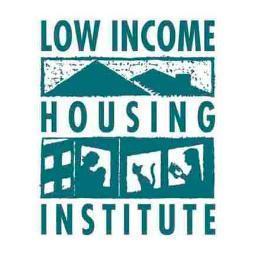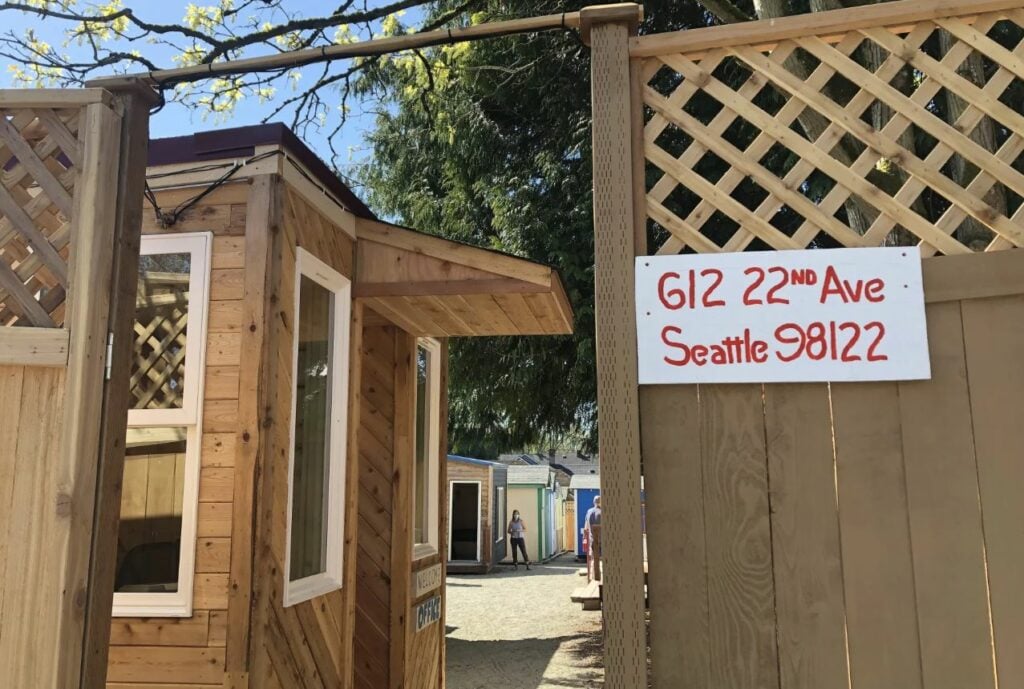Seattle Tiny House Villages
Seattle Tiny House Villages
Seattle Transitional Shelter at T.C. Spirit Village, Interbay Village, & Beyond
Overview
T.C. Spirit is one of eight tiny house villages within the City of Seattle, funded by the City and developed and managed by the Low Income Housing Institute (“LIHI”), in partnership with many other community members and philanthropic partners throughout Seattle.
In response to Seattle Mayor Durkan’s Proclamation of Civil Emergency in the fight against COVID-19, LIHI opened T. C. Spirit Village – a 24-tiny home village – in collaboration with The Christ Spirit Church and the Seattle Human Services Department.
Context:
- The new units, which were built in roughly a month, opened following Mayor Jenny Durkan’s March 3 proclamation of a Civil Emergency due to the novel coronavirus outbreak.
- Due to the coronavirus and Mayor Durkan’s proclamation of a Civil Emergency, the process of providing the new units was fast-tracked in regards to bureaucratic barriers and permitting, among other things.
- The village specifically serves Native American, Alaskan Native and African American residents.
- The City of Seattle has a department in their City of Seattle Human Services Department (HSD) tasked with tiny home villages – known as the Homeless Strategy and Investment Division.
Mission: Provide an alternative to encampments to help move people off the streets, through bridge housing facilities, and into long-term housing.
Site
Owner: Built on land owned by the Christ Spirit Church. Members of the Christ Spirit Church are providing donations, services, food and other support. In addition, the village receives operational support from the Seattle Human Services Department.
It should be noted that part of the site is a right of way owned by the City of Seattle that is leased to LIHI for one year at the cost of permits (under $1k/year).
Previous Use: Vacant grass lot in residential neighborhood. The site was previously the site of an encampment that had been removed.
Use Arrangement: A revocable license agreement between LIHI and the Church, for one year (with option to renew), to be used temporary encampment in accordance with Seattle Land Use Code. Includes a 90 day termination notice without cause.
Site Selection Criteria Considerations: Church offered the site to the City under the City’s emergency declaration. LIHI, who was in ongoing conversations with the Church for housing options on-site, worked with the Church’s pastor and church trustees, who presented the tiny home villlage proposal to their congregation for review and approval.
Funding
| Upfront Development* | $350k | $150k for the shelters – see notes about donated labor and materials.$200k for site costs/utilities, paid from city’s general fund – see notes below. |
| Cost Per Bed* | $15k/shelter | 24 beds in total |
| Operating Costs* | $464k/year | $416k provided by Seattle’s Department of Health Services (HSD – funded by a variety of revenue sources, including federal, state and inter-local grants, and City’s General Fund), in addition to $47k in private donations (per LIHI) |
| Cost Per Bed* | $19k/bed/year | $52/bed/night |
*approximations
Development
| Lead Deal Coordinators |  and and  |
The Low Income Housing Institute, in partnership with the City of Seattle |
| Community Engagement |  |
Low Income Housing Institute |
| Construction Management |  |
Low Income Housing Institute |
| Shelter Vendor / Manufacturer | Variety | |
| On-Site Assembly | Multiple parties | Tiny homes constructed by local apprenticeships and neighborhood volunteers (“build parties”) – see below |
Operations
Lead Operator:

| Operator | The Low Income Housing Institute (LIHI) develops, owns and operates housing for the benefit of low–income, homeless and formerly homeless people in Washington State.https://lihi.org/ | |
| Land Agreement | A revocable license agreement between LIHI and the Church, for one year (with option to renew). LIHI responsible for security, maintenance, utilities, shared responsibility with Church for meal prep. | |
| Staffing | It will be staffed 24/7 to help the 24 residents with housing, employment, health care, education and other services. | |
| Services Provided/ Management | Village management and day-to day oversight of operations of the site is done by a team of LIHI Staff. This includes a Special Project Manager (SPM), 2 Case Managers, and Village Organizers. Staff will be on duty at all times and will assure the village and its members are safe, accountable, and responsive. See below for more detail. | |
| Cost |
|
|
| Operating Expenses |
|
Press









 NEXT
NEXT


